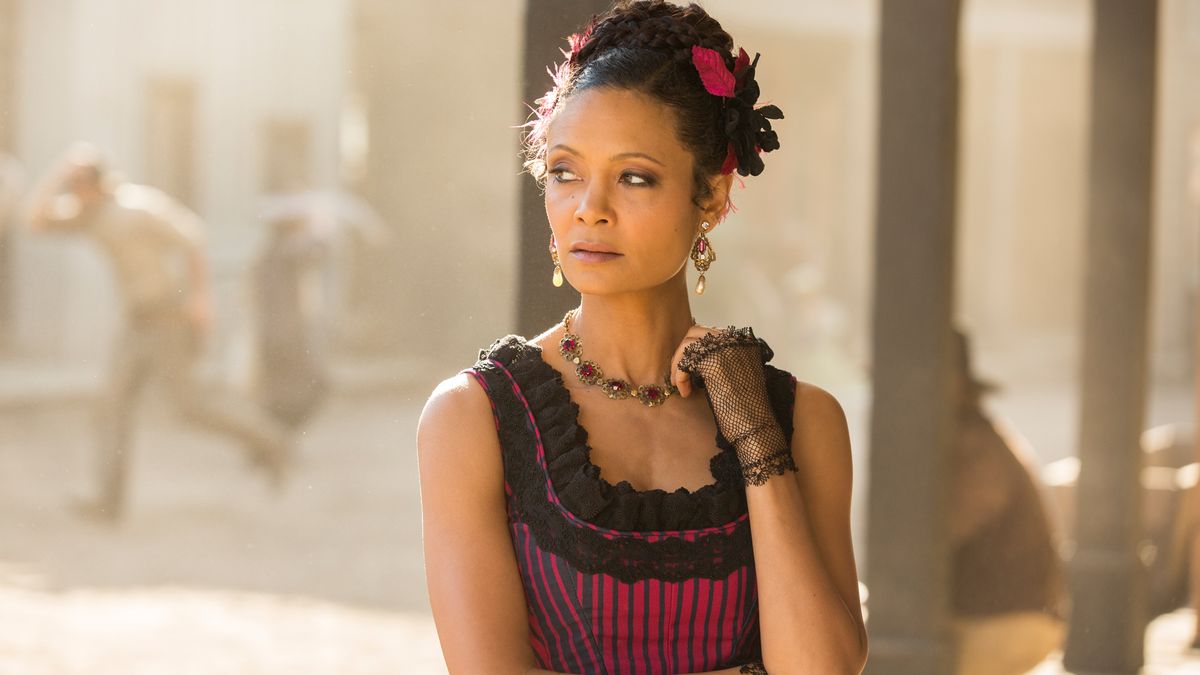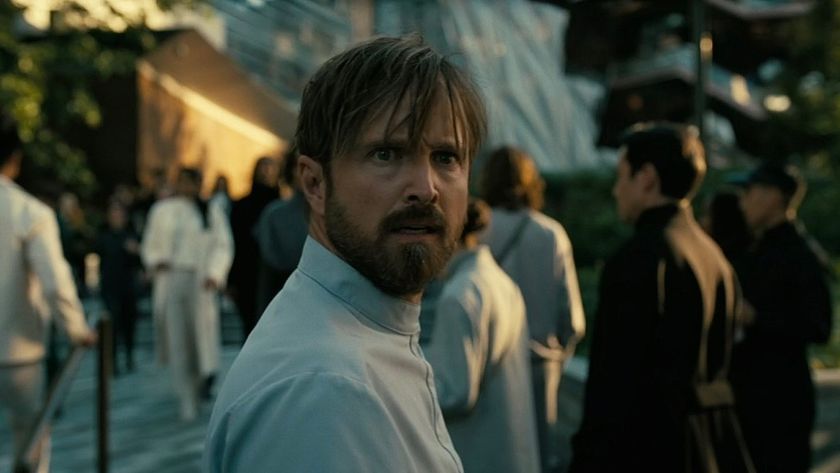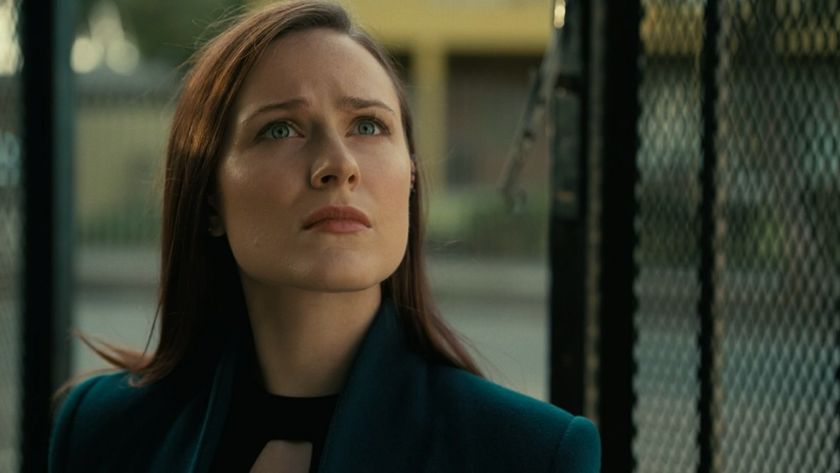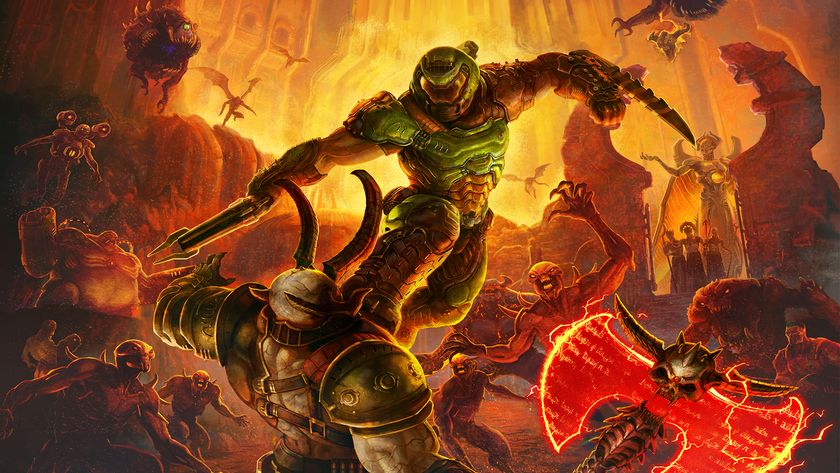12DOVE Verdict
Very little action, but this episode of Westworld is a masterclass in smart storytelling.
Why you can trust 12DOVE
Is Westworld the smartest show on TV right now? For me, yes, it really is. While naysayers criticise it for being ‘deliberately full of itself’ and unnecessarily complicating things, this latest episode - Killers - leaves little doubt that the entire season is wonderfully, deliberately crafted, and there are a hell of a lot of incredibly smart things going on.
Smartest of all, perhaps, is the acting work of Anthony Hopkins, whose increasingly dark and delicious Ford is slowly building towards a reveal for his masterful new narrative. This week we see him explaining more on the ‘Bernard is really a Host’ revelation from last episode, with scripted beauty you rarely see on the small screen: “I don’t need a simulacrum of an emotionally damaged man, Bernard”. So, did Bernard have a wife and child? Nah, that was just a narrative fabrication, designed to anchor his personality. Has Bernard killed before? Uh, yes, it looks like he’s done for Elsie, and… well, who knows how long he has been doing Ford’s dirty work? Are Bernard’s feelings real? Ah, now there’s the thing.
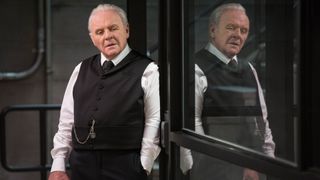
Ford’s conversation with Bernard about emotions is likely a foreshadowing of his grand new plan for Westworld. In Ford’s opinion, the things Bernard feels are real, and make him - because he’s self-aware - no different than any regular human. It’s an extension of the philosophical question that the show has been asking from the very start: what is the human difference, really, between the guests and the Hosts? It’s likely that Ford is working towards something that truly highlights or answers that question. It’s incredibly intriguing. Perhaps the darkest aspect of the Ford / Bernard plotline this week is when all traces of Theresa are erased in the coldest way possible. We see Bernard gather up all her love letters and casually incinerate them like he’s tossing an empty wrapper into the garbage.
But has Ford overplayed his hand? During the scene where they’re talking over Theresa’s body, he seems too confident. “It’s a disappointing end to her story, isn’t it?” he says, barely able to keep the grin off his face. Not only does he betray the fact that he sees all life - not just that of the Hosts - as a story loop, he also gives himself away to Stubbs who later catches up with Bernard and sniffs out the lie. It’s confirmed when Bernard, in all honesty (because that’s what he believes now), says that he only knew Theresa as a work colleague. How all this will play into the new narrative, where Hale and Sizemore are still attempting to steal the park’s data, remains to be seen, but things are going to escalate fast in the final couple of episodes.
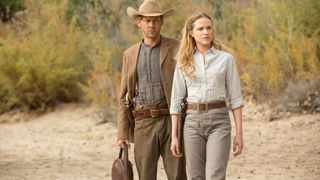
There are three other narratives dominating this episode, and all are fascinating. William and Dolores have found Westworld’s original town, and we now know that the Host who Arnold programmed to ‘clean house’ by executing everyone is Dolores. That’s why Ford doesn’t like her - she almost ruined his life’s work. Their last scene shows the pair caught by Logan, who has joined the Confederados and is now hunting his soon-to-be brother-in-law. Can’t see it working out for those two. Another interesting moment for Dolores is when she sees herself dead and floating in the river - is this just another reverie? The voice she hears (Arnold?) when it happens suggests otherwise.
Then there’s Maeve, who has fast become the most powerful Host in the whole park. After further manipulation of Felix, he makes modifications to her that have… dire consequences for Sylvester. It’s little surprise that Felix refused to wipe her memory, but her sudden ability to slash Sylvester’s throat and then start giving orders to Hosts within the park is both delightful and horrific at the same time. Maeve is now a certified rogue, and while her ability to control the world will be seen by many as a righteous revenge for the Hosts, it does raise more questions about the moral and actual difference between Hosts and guests. Has she become as merciless and vengeful as the people she’s fighting against? It’s tough to feel the same kind of empathy for her now. Her future remains uncertain, as we see her cornered by the techs inside Westworld itself, but her past is maybe the most interesting thing about this episode, and that ties in neatly to our third and final narrative: the Man in Black.
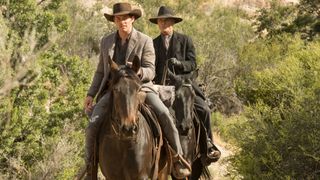
If you’re at all familiar with the Two Timelines theory of Westworld, then this episode will have you absolutely frothing with delight. During the first MiB scene, he and Teddy find a massacred group of Hosts… the sole survivor of which is the girl who introduces William to Westworld in episode 2. “Ford doesn’t like to waste a pretty face” he says, casually. Does this mean he remembers her from his first trip into the park (if the MiB is indeed William, in a later timeline)? Or is it just a coincidence that they’ve met before? Equally plausible, given the number of times the Man in Black has been into Westworld.
But here’s where it gets really delicious. We discover more about the Man in Black’s past, and why he became so obsessed with finding ‘the maze’. After the suicide of his wife, the Man in Black enters the park to discover himself again - this time to see if he still feels anything at all - and decides to test himself. The test is to kill Maeve and her daughter, possibly the most heinous act he could perform, and this causes quite a few problems. That’s an understatement - this is a seismic event in Westworld. Maeve is so traumatised by it that she breaks her programming: she cuts the Man in Black then, when she’s taken back to be reprogrammed, not only does she ‘wake up’ and refuse to obey voice commands, but she also manages to kill herself after Ford has performed a wipe.
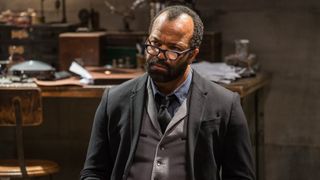
There are a couple of things at work here. First off, we actually see Ford ‘downloading’ data from Maeve before he tries to wipe her memory. Was this the basis for the reveries that he implanted into all Hosts, and is this all part of his ‘new narrative’ for Westworld? Hmmm… The other rather intriguing strand to this is that the Man in Black actually started Maeve’s awakening with his little experiment, which ties their plotlines together quite neatly. This episode, more than any before it, highlights the efficiency of Westworld’s narrative - there are no wasted scenes, and every interaction not only has meaning but, in most cases, double and triple meaning. It’s almost intimidating trying to keep up, but hugely rewarding when you do. It’s the purest form of watercooler TV.
Back to the Man in Black, and his link to the two timelines theory. Ok, when Teddy interrogates him, MiB talks about how he was a titan of industry, and was married with a daughter. We already know that this is what will likely happen to William when he leaves the park, as he’s engaged to Logan’s sister and holds a senior position in that company. We also know that William loves Dolores, and will likely neglect his wife and ‘real life’ by heading back into Westworld to meet her (whether she wants to or not - we know the Man in Black rapes her in some of his visits). The two sound awfully entwined to me. However, as always, this could be a red herring. HBO pulled a very similar trick in Game of Thrones season 6 by giving credence to the much hyped ‘Cleganebowl theory’, before switching it up in the explosive final episode. There’s every possibility the MiB is a different ‘titan of industry’ with a family, because we already know time in Westworld isn’t cheap.
The climactic scene reveals our first proper look at the maze, as it appears in the flashback where Maeve dies on the ground outside her house. “There’s a deeper game - Arnold’s game - and that cuts deep” muses the Man in Black, in a chilling foreshadowing of the season’s final couple of episodes. Like Arnold’s game, this show continues to reveal new, utterly fascinating depths. Combined with the complex cast of characters, superb dialogue, and smart pacing this episode - more than any before it - confirms that Westworld really is the smartest show on TV right now.

